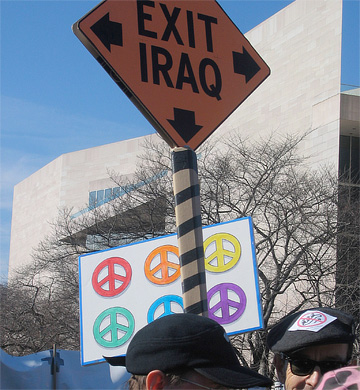This is the first part of a series I’m calling: Seeking the Peace of Christ: Christianity and Peacemaking.
Peace is essential to Christianity. There can be no doubt about it. Consider, for example, these passages from the New Testament Gospels
Glory to God in the highest, and on earth peace, good will toward men. (Luke 2:14, KVJ)
Peace I leave with you; my peace I give to you. I do not give to you as the world gives. (John 14:27)
Then there are these verses from the writings of the Apostle Paul:
Therefore, since we are justified by faith, we have peace with God through our Lord Jesus Christ. (Rom 5:1)
For the kingdom of God is not food and drink but righteousness and peace and joy in the Holy Spirit. (Rom 14:17)
Do not worry about anything, but in everything by prayer and supplication with thanksgiving let your requests be made known to God. And the peace of God, which surpasses all understanding, will guard your hearts and your minds in Christ Jesus. (Phil 4:6-7).
Of course then there’s the classic statement of Jesus in the Sermon on the Mount:
Blessed are the peacemakers, for they will be called children of God. (Matt 5:9)
So peace is essential to Christianity, and Christians must surely seek to be peacemakers. Right?
Unfortunately, it’s not that simple . . . or, at least, we Christians have complicated what was meant to be simple. When it comes to the matter of Christianity, peace, and peacemaking, we encounter several perplexing problems. Three stand out in particular.
First, theologically conservative American Christians (like me) have tended to think of Christ’s peace mainly if not exclusively in terms of personal peace with God and the inner peace that follows from this divine relationship. Now let me say at the outset of this series on Seeking the Peace of Christ that I passionately believe that you and I can have personal peace with God through Christ. I also believe that one result of this peace is deep, inner tranquility and a sense of well-being, the of God “which surpasses all understanding” (Phil 4:7). I would never deny the wonder of these dimensions of peace, and will not do so in this series. But I would contend that the peace of God, as revealed in Scripture, includes much more than we evangelicals sometimes think. It’s not that we are wrong in what we believe about God’s peace, but that we believe far too little.
The second problem with peace is that we who speak English tend to think of peace in negative terms, as the absence of war or other kinds of conflict. When two sides in a war come together and sign a treaty, then peace has been achieved. Or when a husband and wife finishing fighting, we might say that have worked out peace in their relationship. But this sense of peace falls short of the biblical vision. As you’ll see in this series, the Bible speaks of peace as something far broader and grander than merely the absence of conflict.
 The third problem when it comes to Christianity and peace is that the language of peacemaking is often used among more theologically and/or politically liberal Christians to describe a certain kind of political stance in the world. Peacemaking is often aligned with full on pacifism, or, at least, with a strongly pacifistic anti-military stance. In my experience in a mainline denomination, so-called peacemaking often goes hand in hand with vigorous, partisan criticism of the United States. Now I’m not suggesting that this political perspective is necessarily right or wrong. But it does confuse matters if we want to understand the biblical notions of peace and peacemaking. The way many Christians use this language may keep those who use it from missing the biblical sense(s) of peace. Moreover, evangelical Christians can associate peacemaking with liberal theology, while politically conservative Christians can assume that one who talks about peacemaking embraces a liberal political agenda. Bible-believing Christians can almost forget that Jesus was the one who blessed the peacemakers, and therefore we had better figure out what this means so we can join them.
The third problem when it comes to Christianity and peace is that the language of peacemaking is often used among more theologically and/or politically liberal Christians to describe a certain kind of political stance in the world. Peacemaking is often aligned with full on pacifism, or, at least, with a strongly pacifistic anti-military stance. In my experience in a mainline denomination, so-called peacemaking often goes hand in hand with vigorous, partisan criticism of the United States. Now I’m not suggesting that this political perspective is necessarily right or wrong. But it does confuse matters if we want to understand the biblical notions of peace and peacemaking. The way many Christians use this language may keep those who use it from missing the biblical sense(s) of peace. Moreover, evangelical Christians can associate peacemaking with liberal theology, while politically conservative Christians can assume that one who talks about peacemaking embraces a liberal political agenda. Bible-believing Christians can almost forget that Jesus was the one who blessed the peacemakers, and therefore we had better figure out what this means so we can join them.
As we begin this series on Seeking the Peace of Christ, my goal is uncomplicated. I want to grapple with the biblical understanding of peace, so that we might experience the fullness of God’s peace in Christ and be agents of peace – yes, peacemakers – in the world. Tomorrow I’ll begin to lay out the biblical vision of peace by starting at the beginning.

